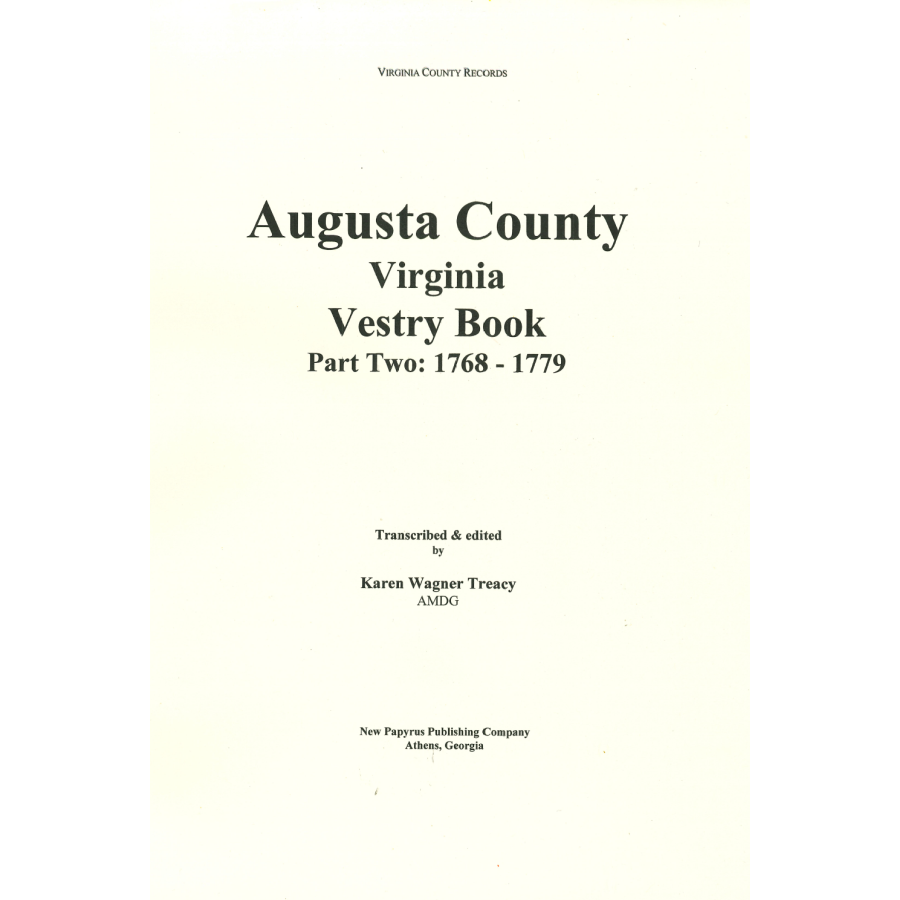Augusta Parish, Virginia Vestry Book, Part Two: 1768-1779
Couldn't load pickup availability
From the author's Introduction: As a part of the Established Church, the Augusta County, Virginia Parish Vestry operated as a political entity as well as the spiritual authority in the region beyond the mountains in colonial Virginia. It was responsible for a variety of civil functions, including caring for the needs of the poor, maintaining property boundaries, and ensuring orphaned children were placed in apprenticeships during their childhood and taught a trade to support themselves when they reached maturity. With thousands and thousands of acres of unpopulated land, new colonists poured into the Valley of Virginia to find their homes and fortunes. The framework of colonial government which worked to some extent in the coastal regions was a poor match to the needs of the backcountry. Settlers fleeing the disorders of Europe and the discrimination of the British Isles brought with them neither loyalty to the King nor the desire to see the situations they fled instituted afresh in the new country they hoped to make their own. By their own hard work they would shape the future to their dreams, in spite of the King or the Church. A large proportion of those settlers were of Scots-Irish stock--independent and capable. Their traditions were with the Presbyterian faith, and freedom of religion was bred into them. The government embraced an Established Church: but that merely required them to find a way to work around it. And regardless of how well or how poorly the Vestry, the governing board of the Augusta Parish, was suited for the task, the Parish had responsibilities to meet among the people of the Valley. Part One of the Vestry Book was transcribed and edited by John Logan Anderson, in his 1985 Masters' thesis at the University of Virginia, The Presbyterians and Augusta Parish, 1738-1757 : a political and social analysis. This extremely useful study identifies and examines the Presbyterian leaders who comprised two thirds of the allegedly Anglican Vestry. In this volume, I have transcribed Part Two of the Vestry Book, 1768 to 1779.
Part Two is being released along with a volume of the records of the Overseers of the Poor of Augusta County, who took over the responsibility of caring for the poor when the Virginia General Assembly did away with the Established Church after the Revolutionary War. A third companion volume consists of the many lists of delinquent tithables, persons identified as unable to pay taxes. These three volumes give varying windows onto the underprivileged class of Augusta County.
Karen Wagner Treacy
2023, paper, index, 106 pp.
107-ACVB
